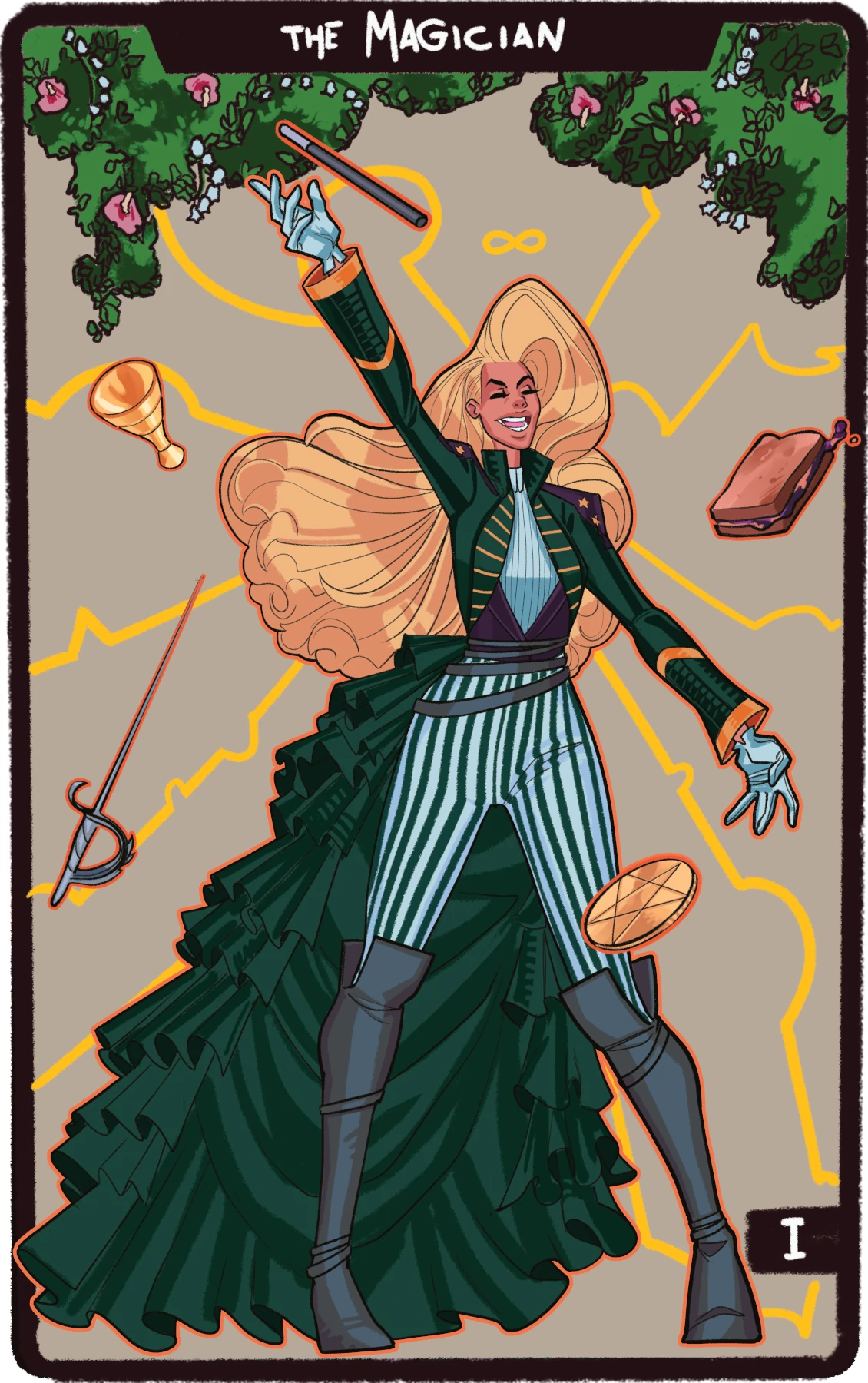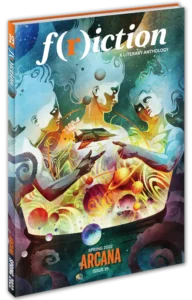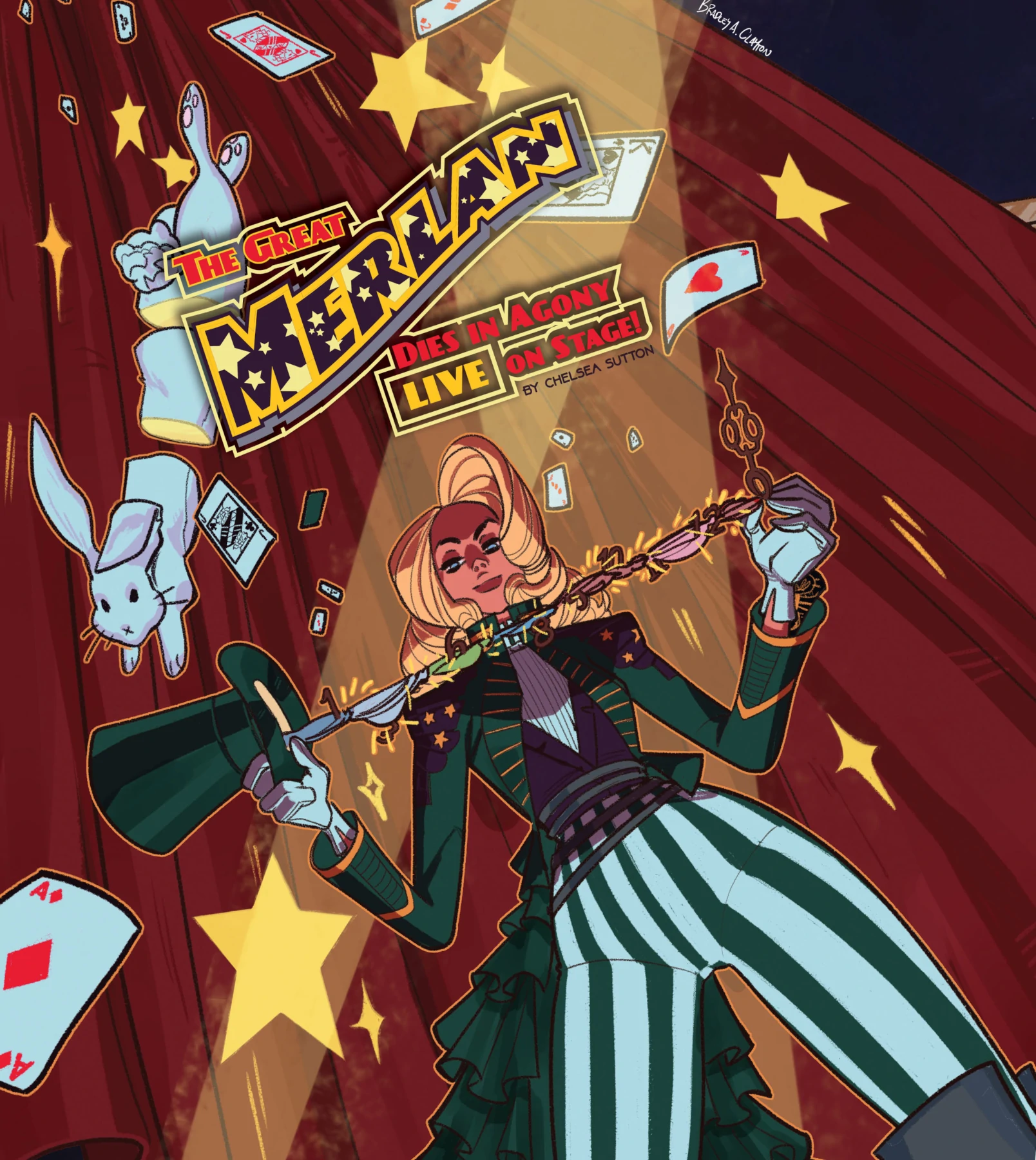
The Great Merlan Dies in Agony Live on Stage!
Words By Chelsea Sutton, Art By Bradley Clayton
You’ve been studying The Great Merlan’s autobiography. Cover to cover. Word for word. If you are to become the next Great Merlan, then you must understand her backstory. But it’s aimless and scattered, like so many bits of fabric stitched together with cheap thread.
Your agent sends out a press release that The Great Merlan, newly released from her six-year stint in prison, will be going into seclusion within the same coven of witches she studied with all those years ago. She is working on her craft, the release says, like she’s becoming a completely new person.
You will be going to the coven to study and will return as The Great Merlan. The original Merlan is retiring to a resort somewhere with coconuts and gin. And the public will be none the wiser.
The witches are not happy about the press release, but your agent explains to them that it is better to tell the public where The Great Merlan has gone rather than just disappear her off the planet.
“Whatever,” says a witch with silver hair. “Just no interviews.”
“And we’re calling her Merl while she’s with us,” says a bald witch. “That Merlan name is ridiculous.”
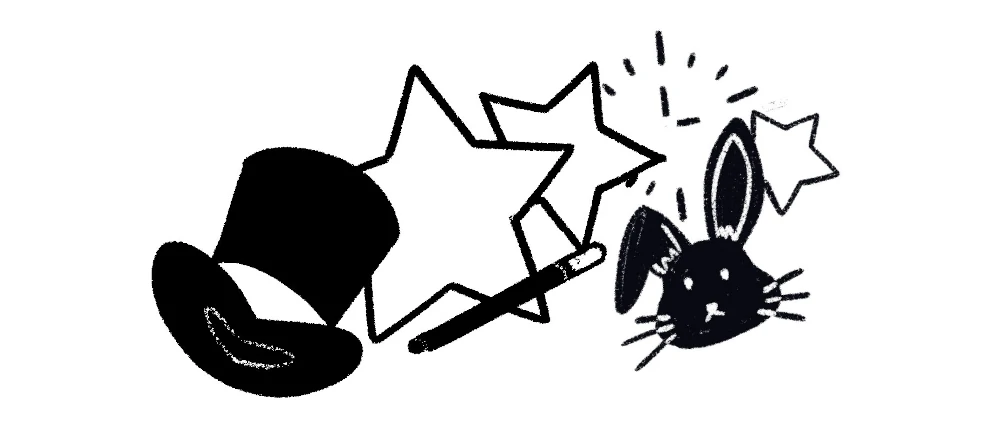
This is before all that, before prison and covens and agents. The Great Merlan’s biggest fan, Liz, aged twenty, sits in a little bungalow provided for Liz and her mothers on the hospital grounds, nestled with a bunch of other bungalows filled with people with dying loved ones—the cancer cul-de-sac, her mother calls it—waiting for her little sister to die.
Slick blue couches that can’t be stained. Carpet so trampled down that it seems to be hugging into itself, an anxiety-ridden floor in cubicle-office pale green. A box TV tapped into the hospital network that runs old Hallmark Christmas movies, religious testimonials, reruns of Seinfeld.
Liz is restless with the special kind of restlessness that comes from having no power over death. She does card tricks and coin tricks and pulling‑rabbits-out-of-various-headwear tricks for her sister, Meggie. Liz attempts simple healing spells using weeds from the planters outside the bungalow and smelly candles from the hospital gift shop. And Meggie, to her credit, claps and laughs and otherwise humors her big sister.
“I think that one really worked,” Meggie says, eyes so bright Liz almost believes her.
But when the doctors still get that certain pity-sad look on their faces when talking to Liz and her mothers about Meggie’s condition—Meggie in her green hospital gown with the yellow saliva stains and the pudding snack spillage—when the nurses start patting Meggie and Liz’s mothers on their shoulders and offering free drinks from the employee fridge, just between us; when Meggie starts making travel plans for next summer in that semi-raspy Billie Holiday voice of hers with a little lilt that told them that she knew very well she didn’t have a next summer—that in fact she had now, officially, experienced as many summers as she was ever going to, fourteen to be exact—Liz does what she always does: she goes to see a show.
Her favorite magician is performing at the Pechanga Hotel and Casino not far from the hospital where she and her parents are staying as Meggie receives the last of her hopeless treatment. Liz’s friend Carrie Cutler had finally landed a stagehand job on The Great Merlan’s tour—the same tour they had both dropped out of college for, the same tour Liz would be working on now too if it wasn’t for the phone call from her mothers and the word cancer and the plane ticket home. Liz deserves a free seat. Her sister is dying.
At least that’s what she texts Carrie Cutler.
Got you a seat and a backstage pass, texts back Carrie Cutler, ignoring the part about the dying sister.
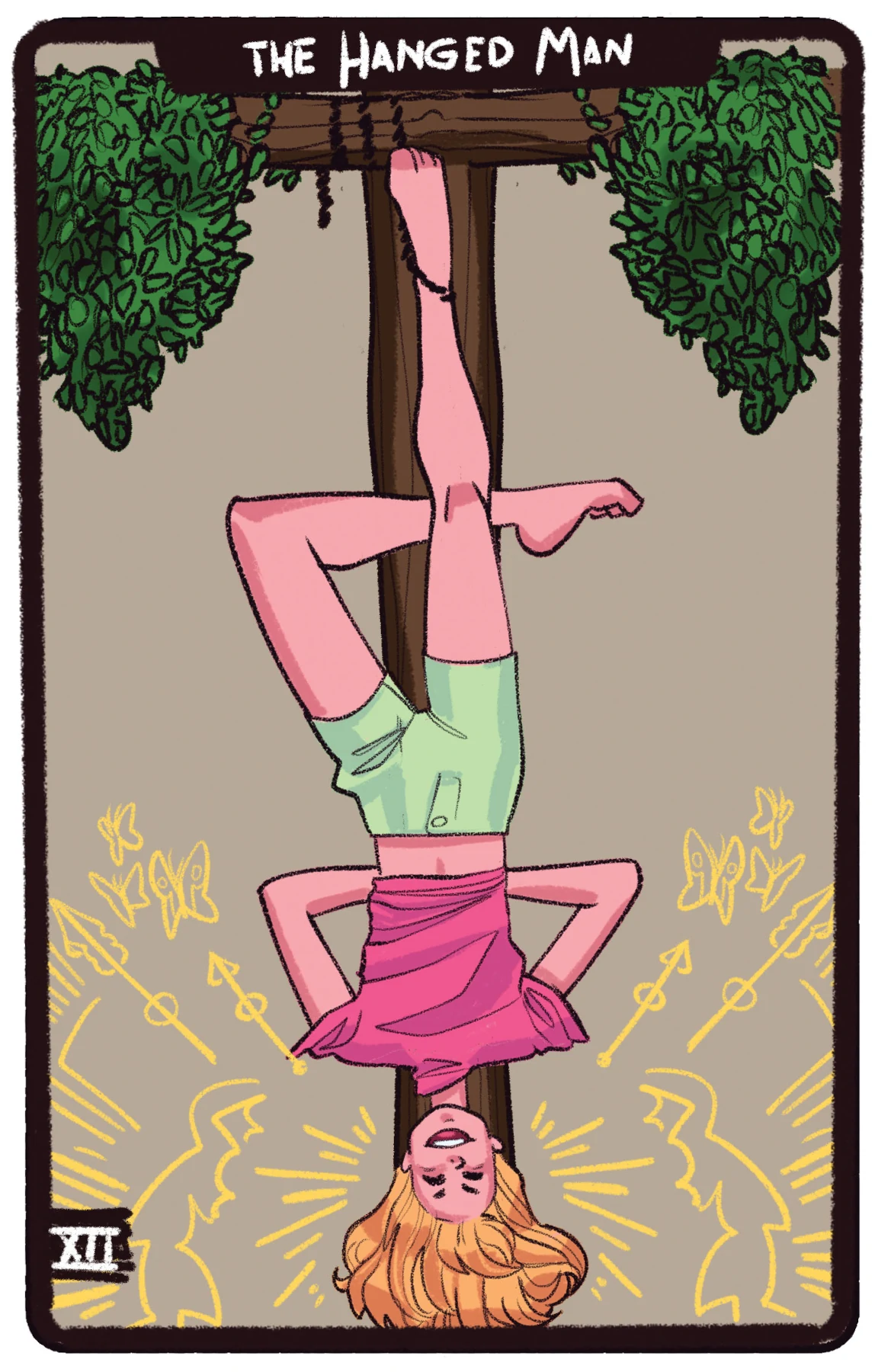
When Liz tells her mothers she’s taking a break from the hospital, they hardly notice. One mother (Rhonda) is too busy looking up summer flights to Berlin with Meggie, as her other mother (Maria) throws the numbers they quote into a spreadsheet, nodding and smiling that boy yes, these are good deals, aren’t they?
“Do one before you go,” says Meggie, and Liz pulls a coin out of the air and tosses it to Meggie, who coos. Liz is proud of that one.
“Magic is so dumb,” says Meggie in her special tone that is mocking and hugging you at the same time, turning the coin over and over in her thinning hands.
“You’re the worst,” Liz says, as the mothers clamor about the plane tickets and the adventures Meggie will have once she heals. Only in a matter of Time.
When Liz peeks at Maria’s spreadsheet on her way out, all she sees is Maria typing the same thing over and over again. My little girl is dying. Berlin from Los Angeles $740. My little girl is dead. Los Angeles to Paris $890. My little girl is the walking dead.
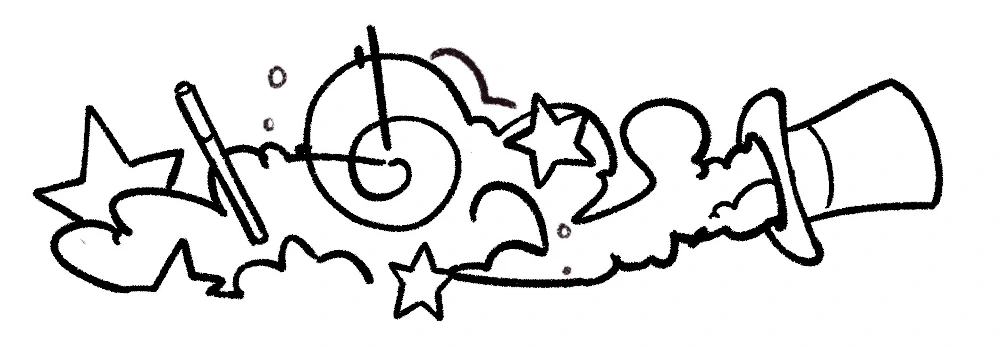
Six years before this, before the cul-de-sac and the spreadsheets, when Liz is fourteen herself, the same age her sister will be when she is dying of cancer for the first time, Liz is cast in her high school’s production of Spoon River Anthology, a play of monologues from dead people. Liz has never felt more alive than she does on stage. Liz plays the tragic character of Anne Rutledge—the only character based on a real person—who supposedly was Abraham Lincoln’s first love. Liz spends hours preparing for the role, using an Ouija board to try to get in contact with Lincoln himself. If she could just flirt with him, even for a moment, she could feel what Anne felt. She could become Anne.
Backstage, Liz whispers with her friend Carrie Cutler about getting no answer from Lincoln.
“He’s probably over it. I mean she died, so like, you move on,” says Carrie Cutler, adjusting an awkward nineteenth-century bonnet.
On stage, Carrie Culter’s boyfriend Vince is doing a monologue as the town drunk, stumbling through an extended metaphor about life being a gamble.
“You ever watch magic?” Liz asks. Earlier that week, Liz had seen The Great Merlan for the first time, on a late-night talk show during which The Great Merlan had somehow rotated the host’s desk and turned all the cameramen’s shirts inside out without anyone noticing. Liz was smitten.
“She should have left the shirts off,” says Carrie Cutler. “That would have been something to see.”
There is a deafening silence on stage. “Line,” Vince whispers with panic.
“So, if you lose, get out of the room,” whispers Carrie Cutler in Vince’s direction.
“So, if you lose, get out of the room,” says Vince. “Get out of the room when your time is up.”

This is after all that, just an hour’s drive from the cul-de-sac, an hour into taking a break from the Meggie situation. Liz arrives at the Pechanga Hotel and Casino. Liz hates the tinkling sound of the slot machines and the too-cold air conditioning and the smell of old lady perfumes wafting after the octogenarians at the dime slots ordering 7 and 7s. Yet, there is less death in the air here, fewer whispers and chemo-sick smells, no squeaking of gurney wheels cutting through Meggie’s gravelly, sleeping breath.
Inside the theater, there is only a scattering of couples, a small encampment of retirees, and Liz. Carrie Cutler had told her that the crowds had been thinning since Liz went home to watch her sister die—but Liz didn’t expect this. Carrie Cutler looks at Liz with those familiar bloodshot, electric gray eyes that always make Liz shiver. “I’m sorry about your sister,” she says.
Liz chokes on her own voice for a moment. “Thanks for the ticket.”
“I gotta go run the soundboard. The op was drunk when we got here,” Carrie Cutler says, leaving Liz alone, hunched in her seat, trying not to think about Meggie, pulling a coin out of the air again and again and again—until, finally, The Great Merlan’s signature overture fills the room.

You have been studying with the witches for six months. You told your family that you are at a Shakespearean theater workshop in the mountains and will be hard to get a hold of for a while. They don’t know about The Great Merlan.
You have seven witch roommates. Together you cultivate the garden that circles the whole house—mugwort and rosemary and lavender and so on. You are allowed to learn a few spells here and there. Nothing spectacular. Nothing fit for the stage, at least.
But you so enjoy working with your hands and saying little spells for protection around the house and cooking red bean soup that you almost forget about The Great Merlan and are, instead, just Merl, the witch apprentice, who is super good at making cornbread.
Two months into your stay, the after-dinner lesson reminds you. “Tonight, we will do a lesson on Time,” says the silver-haired witch. “Time is not something you travel or create. It is in pieces stitched together. And it can, of course, be rearranged.”
This is something that The Great Merlan had perfected, something you should learn too. It will be great for the act. Especially if you could be better. You have to be better.
“Time does not work how you assume it does,” says the silver-haired witch.
Just imagine the merch, you think.

Liz knows The Great Merlan’s Pechanga show by heart. It still feels comfortable, like a grilled cheese sandwich—but The Great Merlan’s mind seems to be somewhere else.
For the finale, The Great Merlan dumps herself into a tank of water, her arms and legs chained together. “Goodbye,” she says to the audience, a word that would usually send Liz’s heart fluttering with anticipation. But not tonight. The tone is different. It feels like a real ending, the fading of an echo, the sign-off on Meggie’s voicemail when she says she’ll call you back when you know, someday soon, she won’t.
“You have been amazing. Remember that,” says The Great Merlan. And into the water she goes.
Dramatic music. Thrashing about. The audience holding their breath. And then, when everyone thinks The Great Merlan is drowning for certain, a giant chandelier appears from the rafters and falls toward the audience.
Everyone looks away from the tank. They scream up at the chandelier. They dive out of the way. Except for Liz, who, for the first time, does not want the Broadway spectacle. Liz keeps her eyes on the tank. She’s searching for a sign, something that tells her that maybe The Great Merlan knows a way to trick death.
The lights go out.
The Great Merlan’s voice echoes behind Liz. A spotlight illuminates the magician, standing very alive and very dry, in the aisle.
“Thanks for your Time,” she says, and winks at Liz.

Two years before the Pechanga show, before Meggie’s ongoing bad health was given a name and her life an expiration date, when the idea of dropping out of school to follow a magician had not yet formed in their brains, Liz and Carrie Cutler sit in Liz’s freshman dorm room sharing a beer. Carrie Cutler had hidden the can in her bra next to her left breast and rode the elevator all the way to Liz’s floor looking lopsided and slushing slightly when she walked.
Liz shuffles a deck of cards and practices the moves she’d been perfecting since high school when she first saw The Great Merlan on TV.
She makes a rabbit appear from beneath her pillow.
“You’re not supposed to keep pets here,” says Carrie Cutler.
“It’s magic.”
“Magic isn’t real.”
“Merlan studied with, like, witches and shit,” says Liz. “Like, even necromancers. Do you think she has, like, an apprentice program?”
“Yeah, and I’m sure she’s just dying to set that up,” says Carrie Cutler. She laughs at her own joke.
“What if she can raise the dead? In movies, when you raise the dead, they never come back exactly like they were.”
“So? You haven’t ever wanted to be someone else?” says Carrie Cutler.
“Sure. I just don’t want to die for it.”
“There’s no other way to do it.”

It starts with seeing a few shows in town, and then slightly out of town, and then out of state, until Liz and Carrie Cutler are following The Great Merlan full-time and dropping out of school. Carrie Cutler is drawn to the men in the crowds, the men who guard the backstage doors, the men who slide you the keys to your shitty hotel room with a wink and a lingering gaze. She is made for the road.
But Liz is a purist. She’s following the magic.
They are magician groupies. Maggies. Liz hates how the term sounds so close to her sister’s name. It makes her feel guilty that she’s not bringing Meggie along (she’s always wanted to travel). Instead, Meggie is dragged from doctor to doctor for test after test, no one finding any reason for her fatigue, her headaches, the pain down the left side of her body.
Liz and Carrie Cutler use the last of their loan money for hotels and flights and train tickets and late-night fast-food runs. In between shows, to take Liz’s mind off her sister and the magic tricks she still has not perfected, Liz and Carrie Cutler memorize Shakespearean monologues and scenes from famous movies, giving each other notes, cold calling agents in Los Angeles so that when they are done following this tour and start their acting careers, the city will be ready for them.
The Great Merlan, too, adds monologues to her act, long lingering sentences on the meaning of life that end with the appearance of a bird out of thin air or an audience member rising out of their seat, an entire replica of the statue of David disappearing from the stage and reappearing in the women’s bathroom.
Liz memorizes those monologues, too. Most people, including Carrie Cutler, take the monologues as a sign that The Great Merlan is cracking up—but Liz can’t get enough. She practices them in the hallway as Carrie Cutler has sex with the guy she met at the theater’s ticket booth whose hands are covered in ink stains, or the one from the concessions counter who smells of butter, or the one who gave her that free chicken sandwich at the diner.
“Time is shapeless,” says Liz, trying to remember the exact quality of The Great Merlan’s voice, the inflections, the stress on each syllable. “You can move one piece of Time, like a book on a shelf, and place it anywhere you like. Time cannot be traveled or . . . shit. What was it?”
Liz says the lines again, faster this time so that she can’t second guess herself. The hallway of the hotel in Mexico City is lined with shag carpeting, orange and smelling of fish sticks. She slips off her shoes to let her toes intertwine with the shag. She imagines Time as a web of moments. No, more like a scattering of pieces, of seconds and half seconds and minutes. Some of the pieces she can stretch and wrap around herself. She can snuggle into them and stay there.
“Time cannot be traveled or created. It can simply be rearranged,” says Liz. She likes the way the words sound in her mouth. Like tapioca balls squishing together and coating her teeth.
“Time is merely rearranged,” says Liz. She deepens her voice a bit, holds out a hand, gripping at nothing, pretending to grab a piece of Time and slip it from one side of the hallway to another. “Time does not stop. It is not traveled. It is moved.”
If Liz were The Great Merlan, she would feel a twirl in her heart as a piece of her life moved from one side of the hallway to the other. She would feel herself stepping through the same moments again and again.
But Liz is not The Great Merlan. So instead, in the growing silence of the hallway, she talks to herself as the sound of Carrie Cutler and the bellhop’s moaning bleeds out from beyond the door.

You say goodbye to the witches, who are sad to see you go. Or they play at it well, which you need. It takes a certain amount of delusion to walk into a coven as a theater kid and amateur illusionist, and to walk out as The Great Merlan, ready to wear that name for as long as it will last.
The greatest illusion. The purest magic spell. To be who you say you are.
The witch with the silver hair hands you a bundle of letters from your family before you leave. “These got stuck in the dead letter office.”
Your sister’s lively, round handwriting in orange ink. She’d mixed up the two and the five on the address. Your mother’s steady, black pen, the number mix-up copied over. They are warm and smell like mothballs, any lingering scent of your family faded from the heat of the post office.
You don’t read them. There’s too much to think about. You read emails from your publicist and your tour manager instead. You go over the script of the act you’ve developed at the coven. You do not look at the emails from your family, buried deep in all the unopened depths of your inbox. You leave the voicemails un-played. No distractions.
Backstage at the first theater on your tour, you debut as the new Great Merlan (though no one knows you’re new, except the original Great Merlan and you and your publicist and the witches). Your heart is beating to the rhythmic murmurs of the crowd, like all those days in the high school theater, when the crowd is so close you can smell their perfume and hear the rustling of their programs. The Great Merlan does not have a sister or a family, you think. The Great Merlan is more than all that.
Your first performance is a rebirth. You forget your real name, your family, all of it.
In this moment, right here, you are who you always wanted to be.

Backstage at the Pechanga Casino, Liz and Carrie Cutler are the only ones in the green room with The Great Merlan. It is musty in the way that all theaters are musty, hot from sweat and lights and stinking of chlorine from the water tank. The Great Merlan is slumped at a table in front of a glass of flat, warm orange soda and staring at a spot in the air as if scanning for a name or a lottery number or a lost contact.
She uncaps a marker when Liz and Carrie Cutler approach her. “Who’m I signing it to?” she says, not looking away from the spot in the air.
Liz looks at Carrie Cutler. “Uh, I don’t have anything for you to sign,” she says.
“There’s some posters over there,” says The Great Merlan, gesturing to a stack of 11 x 17s by the door.
“I’m your biggest fan,” says Liz, knowing it sounds just as stupid coming out as it does in her head. “I was a Maggie.”
“Like me,” says Carrie Cutler.
The Great Merlan turns and blinks at Liz as if trying to clear her vision of seawater. “Good for you,” she says.
“My sister is dying,” Liz blurts out.
“So you want me to sign it to her?” says The Great Merlan.
“Actually, I was wondering if you could tell me how to cure her,” says Liz.
The Great Merlan raises one eyebrow.
“Maybe I don’t mean cure . . .” says Liz.
The Great Merlan raises her other eyebrow.
“She needs more Time,” says The Great Merlan.
Carrie Cutler jabs Liz in the ribs and gives her a look that says Why didn’t you warn me you were going to do this?
“That’s dangerous,” says The Great Merlan. “Best to just let her die. I’ll sign a poster for her.”
Liz doesn’t move. Carrie Cutler hurries to the door and brings a poster back. The Great Merlan begins to sign it as her attention drifts back to the spot in the air, her hand still moving quickly across the poster, the marker squeaking.
Liz cannot move her arms for fear of strangling The Great Merlan. She cannot move her legs for fear of ramming her body into the magician. So, she stands stiffly, waits for The Great Merlan to stop scribbling, lets Carrie Cutler roll up the poster and stick it in Liz’s hands. It’s Carrie Cutler who mumbles a “thank you” to The Great Merlan and drags Liz out of the room, The Great Merlan’s eyes still searching and searching the air behind them.
It is not until later that night, when Liz is back at the cancer cul-de-sac, that she unwraps the poster and sees, scrawled in The Great Merlan’s unsteady hand, an incantation.
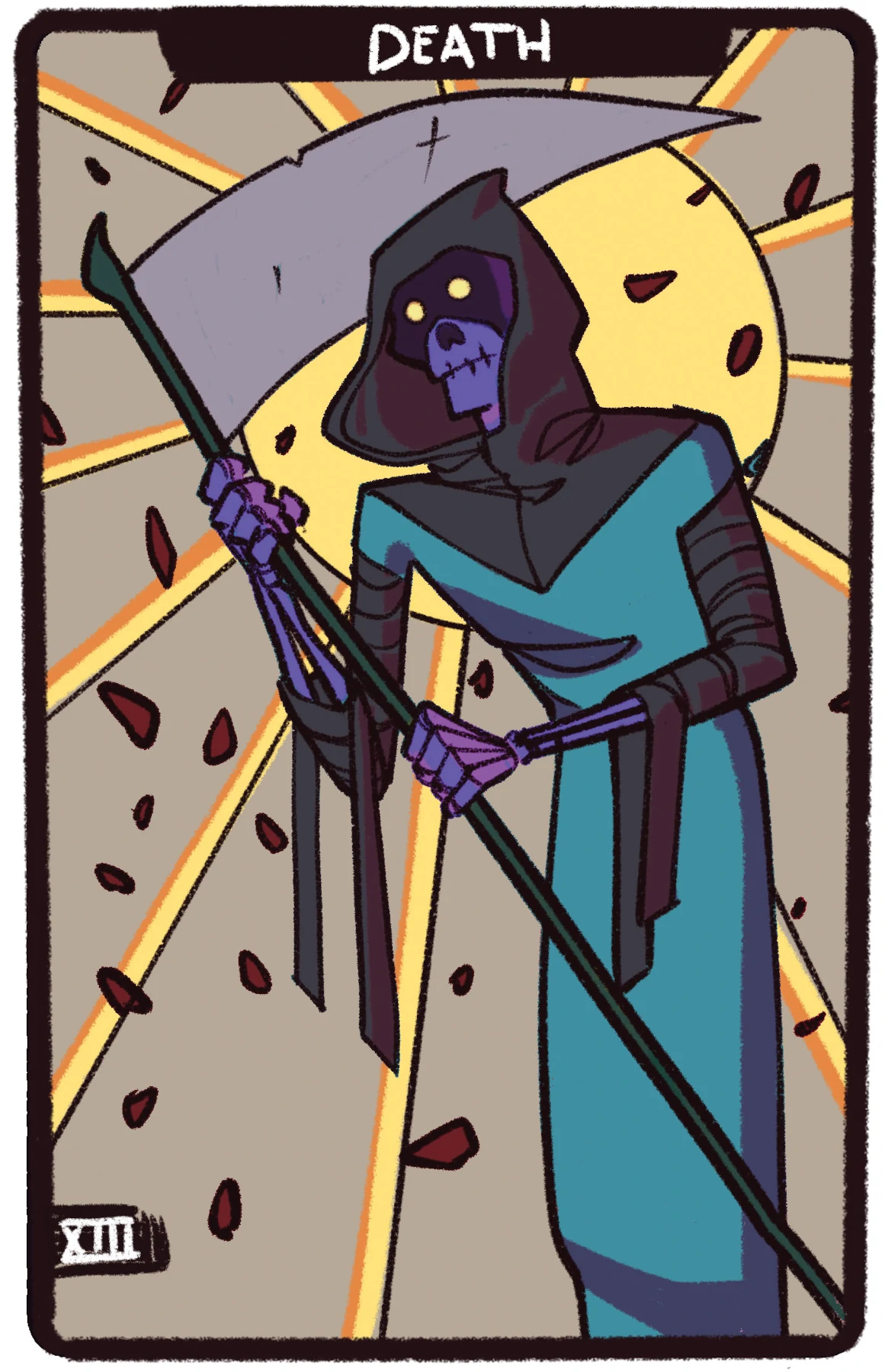
Maria already has another spreadsheet going of medical expenses. Gas mileage for hospital visits. My little girl is dying. Hospital stays. My little girl is dead. Funeral arrangements. My little girl is the walking dead. It glows aggressively at Liz from the forgotten laptop on the coffee table as she leaves the bungalow to sneak into Meggie’s hospital room. Not so much sneaks as walks in, as certain (definitely dying) patients are allowed to break the visiting hour rules. The nightshift nurses turn away. The doctors nod at Liz and smile. She slips inside and sits by the sleeping Meggie.
She unrolls the poster and begins to read.
“Time is shapeless . . .” Liz begins. She remembers walking the hotel hallways in Mexico City or Paris or São Paulo, reciting these words to herself not long ago. She knows most of them, but in a different order. It is perhaps the order of the words that are important, the hope behind them, the sound they make against the cold, speckled hospital walls.
Liz reads, letting the words dip and swirl from her lips to Meggie’s ears.

Meggie makes a full recovery. There is a murmur of surprise throughout the ward. The nurses stop sneaking free sodas to Liz and Meggie’s mothers. The pity-sad looks turn all business, turn to preparing-for-life instead of preparing-for-death.
Liz wants to tell her mothers about the incantation, that she saved her sister, that Meggie, their precious Meggie, is still here because of Liz. But she imagines their reactions. The bored pats on the arm, the amused half-smiles, the way they look right past her and let her words flow over them, like a dream or a commercial or the drone of traffic. Easily dismissed. Easily forgotten.
So, Liz texts Carrie Cutler instead. Tell The Great Merlan thank you.
Magic isn’t real, texts Carrie Cutler. Want to come to Vegas?

Two weeks later, Liz and Carrie Cutler are drinking yard-long margaritas in the fifth row of the Las Vegas theater. The Great Merlan has a new handsome male assistant who prances across the stage, bringing The Great Merlan tools and trinkets for her tricks. Carrie Cutler watches him. Liz watches the magician.
The finale finally comes—The Great Merlan at the lip of the stage in a spotlight, the handsome male assistant floating in the giant tank of water.
“Time is scattered in pieces across the universe,” says The Great Merlan.
“That’s not the line,” says Liz.
“Look at those abs,” says Carrie Cutler.
“Something’s wrong,” says Liz. “She’s messing up the monologue. Did you guys change the script?”
“How should I know?” says Carrie Cutler. “I got to sit in on the audition for the male assistant. Now that was fun.”
“Time can be rearranged,” says The Great Merlan. She pauses a bit then motions to an unseen theater hand, who pulls a lever that drops the handsome male assistant further under the water and closes the top of the tank.
“There is no way for him to survive this,” says The Great Merlan.
The handsome male assistant waves at the crowd. The crowd screams with amusement.
“But if I can just rearrange Time for him, maybe I can save him. What do you say?”
Cheers from the crowd. The Great Merlan focuses on a point in front of her. She mutters to herself. She moves her hand in the air as if sliding pieces of a puzzle this way and that.
As usual, the chandelier falls. Screams and laughter. Lights go out.
But when the lights come back, the crowd goes silent. Because the handsome male assistant has indeed been moved out of the tank.
But only half of him.
His top half is sitting on the tank’s glass top, while his bottom half floats in the water below. Blood streams out from the bottom half, mixing with the water. Blood from the top pooling on the glass. Both blood puddles reaching out to each other in tendrils of liquid.
“Merl?” he says, before going still and quiet.
Gasps and screams and chaos.
Carrie Cutler stares at the handsome male assistant until she leans over and quietly pukes in the aisle.
As the theater empties out, The Great Merlan stands, unmoving, staring into the air, as if calculating something, as if trying to find an answer in the nothingness before her.

The Great Merlan is convicted of manslaughter. Gets six years.
Liz writes letters to The Great Merlan about her sister. Thank you notes. She writes when Meggie graduates high school. When Meggie travels for the first time (Paris). She writes to tell her that she and Carrie Cutler have moved to LA, are waitresses in a diner in Burbank, are auditioning for movies and theater.
The Great Merlan does not respond.

It’s at least a month into the first leg of your very first tour when you finally remember the letters. When you feel it is safe to read them.
One of them, the last one in your mother’s handwriting, reads: Answer your fucking email. Answer your fucking phone. You forced me to write letters? The cancer came back. Where are you?
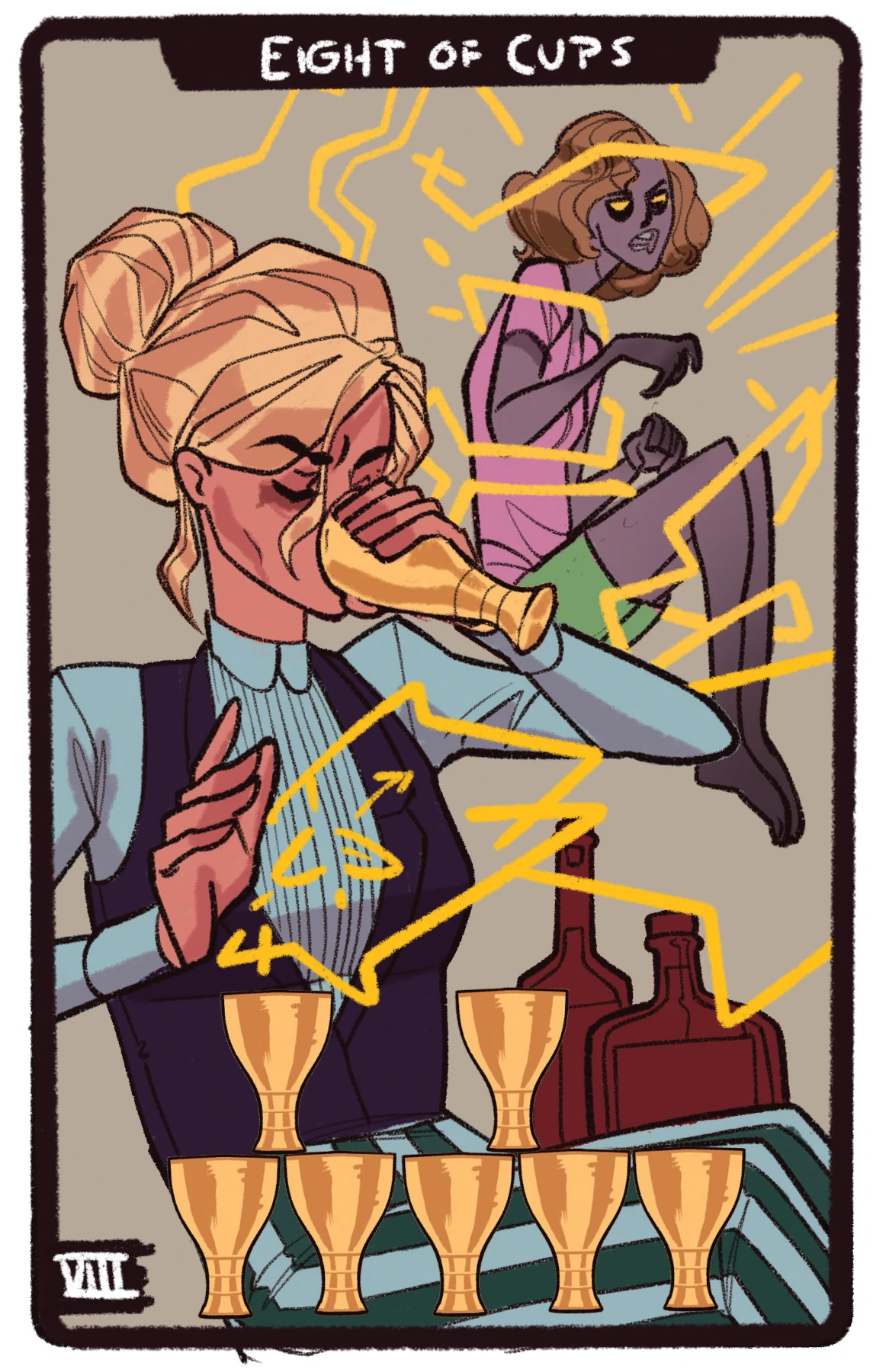

You don’t go home. But even from a distance, you can feel Meggie doubting her luck, thinking she can’t beat Death twice. You patch up the magic from afar every night. She can feel you, you think, poking around in her Time, tightening it around her like a hug, plugging up holes of rotting minutes like you would a flesh wound. It’s not enough. She wants you there. Not just your magic.
But you are The Great Merlan. You will save your sister and not give up this tour. If anyone can do it, you can.
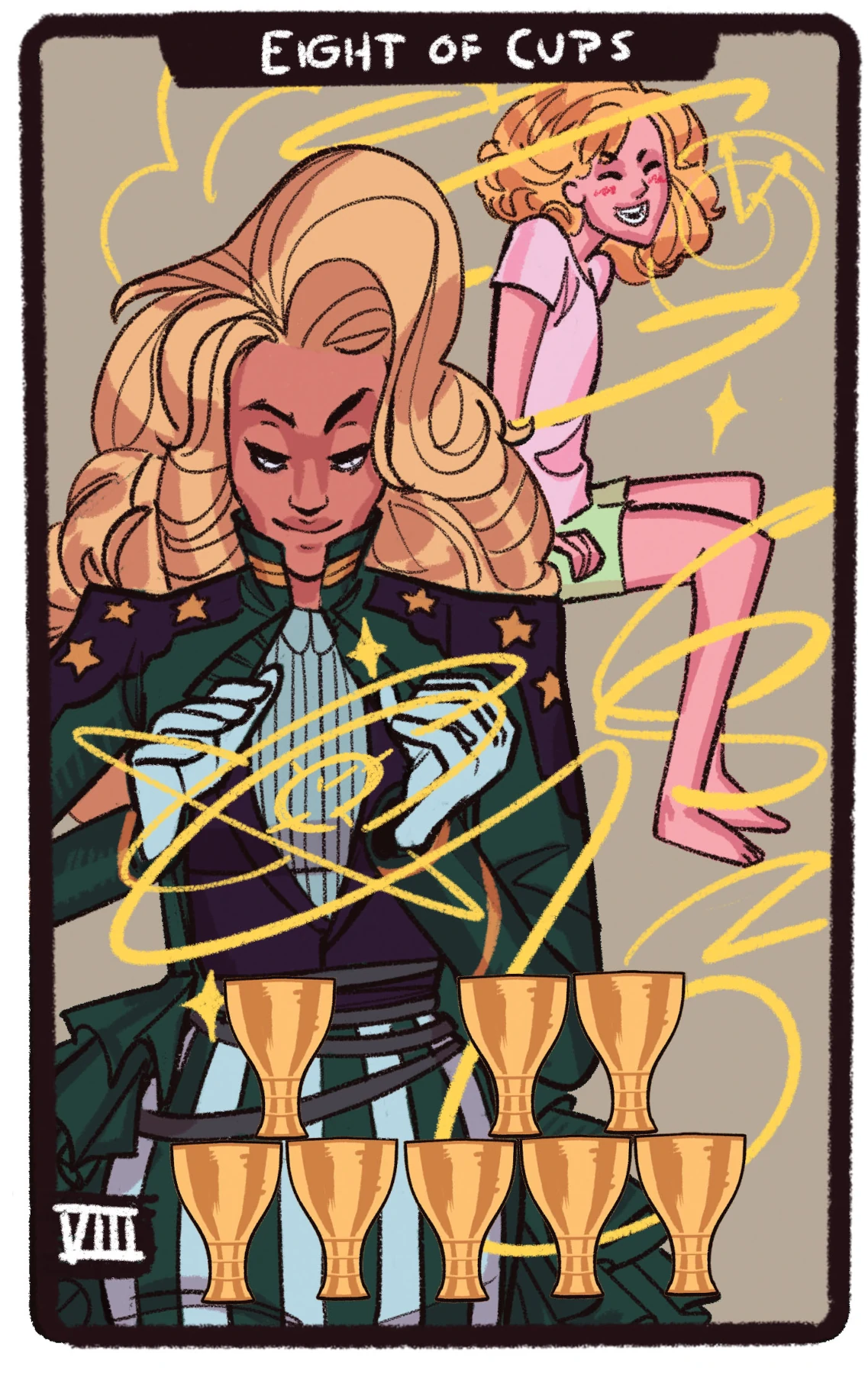
It’s your second job, attending to Meggie’s incantation from your hotel room, after a few bottles of wine, after sleeping with the handsome men who clean the pools and make the restaurant reservations and sometimes buy first row seats to your show, after they giggle at your coin tricks and the rabbits hopping across their naked bodies, after you’ve kicked them out to have some privacy.
I’m feeling better, says your sister. Really. Text messages. Emails. But I’d love to see you. What are you up to anyway? Hope you’re having fun.
You’ll be fine, I promise, you respond.
She’s getting better, say your mothers in voicemails and text messages. Not that you care.

Six years after Pechanga and Meggie’s recovery and the Vegas incident, The Great Merlan is released from prison. Her second phone call in the outside world is to Liz.
“You interested in a new career?” she asks Liz.
Liz has been rejected from acting jobs five times this week alone. She’s picked up more shifts at the diner. But she’s been practicing that incantation and the monologues and the card tricks and the coin tricks. She knows The Great Merlan’s show better than The Great Merlan herself.
“You didn’t even have to audition?” says Carrie Cutler, after hearing about The Great Merlan and the offer.
“Not technically,” says Liz.
Before Meggie got sick, her mothers would celebrate Liz’s small victories (an A on the math test, scoring a goal at soccer). Maria would buy them a ticket to the latest play in town, Rhonda would order chow mein and kung pao chicken, and they’d dance in the kitchen, full of noodles and anticipation and something Liz, to this day, can’t quite name.
The dancing and the noodles disappeared little by little, replaced by a certain flavor of loneliness that spreads slowly. Like thick shampoo or softened butter. Or cancer.
Liz’s heart is buttery.
Liz wants Carrie Cutler to hug her, to dance with her, to offer to buy Chinese food for dinner. Instead, Carrie Cutler says her mechanic is coming over later and maybe Liz should take a walk.

This time the phone call from your mothers comes without a voicemail.
They call again and again over two days. But you’re in the middle of a five-show stint over two nights and exhausted. You forget to do your incantations the first night. You finally pick up the phone on the second.
She’s dead, they say. Meggie’s dead. Why don’t you pick up your fucking phone? The witches had warned you about Time. About how someone practiced can slow it down and speed it up. How a true woman of the craft can bend it without breaking it, spin it into a fine cloth to drape around your favorite moments.
But they did not mention the particular way Time can shatter at the end of a phone call and scatter itself across an unforgivingly cold hotel room floor. How your sister’s smell and her orange ink and the piles of pudding cups in her hospital room roll into the dust under the hotel fridge, lost forever.

You go home.
You miss the wake. You miss the funeral. But you have not missed the burial.
Your mothers leave you alone with the body. You feel their hot breaths behind the door, listening. You’re sobbing silently, your whole body caving in, swallowing it down, trapping this feeling in your stomach. You’ve never cried in front of your mothers, not about Meggie. They cried enough for the three of you.
“Time is shapeless . . .” Your voice cracks.
The Great Merlan’s incantation was not enough to cure the cancer. Merely a pause constantly needing patching up. It couldn’t last. But now you are The Great Merlan. The greater one. You’ll seal this Time so tight, even you won’t be able to find its beginning and its ending.
You start again. Time is shapeless. You are its master.
You can see it: a million pieces spread out before you, all of Meggie’s Time that she ever used. Time looks different for the dead. It takes a while, but you manage to pick out an odd-shaped piece—one that is perhaps out of a dream, warm, easily stretched and molded like clay—and you wrap that Time around the body that is and isn’t your sister. You wrap her in a loop of her own Time. You say the words that the witches taught you and then told you never to use.
“Liz, you want some lunch? Maybe you should eat,” says Rhonda from the doorway.
And Meggie sits up.
“Shit, I’m starving,” says Meggie.
There is a long stretch of Time. You see it twirling through the air, in constant motion, while the Time around Meggie is frozen, holding its breath, holding her together, holding her here.
“I could go for a grilled cheese,” you say, swallowing a sob or a laugh.
“With apple sauce to dip it in?” says Meggie.
“What are you, a moron? You have to ask?” you say.
Your mothers do not respond for quite some time. No laughing or crying or dancing like Liz expects. Or hopes. They simply say: “Liz?”
“That’s not my name,” you say.

Before all this, back at the coven while she is still Merl but not yet The Great Merlan, Liz wakes up at 4 a.m. from a recurring dream, a memory of Liz and her mother Maria watching The Phantom of the Opera, the chandelier above them falling at a climactic moment of a song, and Liz shrieking and laughing and grabbing Maria, who takes Liz’s hand and kisses it.
Liz’s first instinct is to jump on a plane and run home. Instead, she calls Carrie Cutler.
Carrie Cutler snorts at Liz’s question. “Am I proud of you? Did you really just ask that?”
“Forget it,” says Liz.
“Look, you want to become this new magic person or what?” says Carrie Cutler. “If you’re serious about this, you gotta cut out all the Liz bullshit.”
“What do you mean?”
“You know exactly what I mean.”

A year goes by. The Death Time wrapped around Meggie takes some maintenance, but nothing you can’t do from afar. The Great Merlan tour is explosive—you are in a different city every other night. You’ve cut the chandelier from the show. And now you’re resurrecting birds and reptiles. You’re planning a dog next week. A horse the week after.
Your family refuses the free tickets you send them. They’re ungrateful. Jealous, maybe.
But when you get a phone call from Maria, you still hope that maybe this call, maybe this one will be an invitation to Chinese food. An offer to dance in the kitchen.
Instead: Meggie is gone. Come back home NOW.

You stand in your mothers’ living room. Maria has her arms wrapped around Meggie, who is chewing on the couch.
“You lied,” you say. “She’s not gone. She’s right there.”
“It’s not Meggie,” says Rhonda. “This isn’t our daughter.”
“She looks like Meggie,” you say. “She sounds like Meggie. Hey Meggie, you want to see one of my shows?”
Meggie stops chewing. “Yes! When’s your next one?”
“She can’t leave this house,” says Maria.
“I brought her back three times,” you say. You tell them about the incantations at the cancer cul-de-sac, the distance magic, the resurrection. You never got the credit you deserve for the sacrifice, the Time that went into learning how to save Meggie.
“We didn’t ask you to bring her back,” says Maria.
“Look at her,” says Rhonda.
And you do. Her skin is gray and peeling, her arms wrapped in bandages where some of the flesh is pulling away from the muscles and bone. Death Time has always been tricky.
“But she’s here,” you say.
“We can’t do this,” Rhonda says.
Meggie cries. Her tears are black and thick and slide slowly down her face.
“Meggie is all you’ve talked about for years, all you care about,” you say. “So, I fixed it! I fixed your poor Meggie, and you can’t even say thank you.”
Maria smiles gently, the lines in her forehead deep and endless. She looks smaller somehow. She holds your hand. Kisses it. “It’s a good trick,” says Maria. “But that’s all it is.”
Your mothers leave. But they won’t stay away for long. You’re sure of it.
Your words are sticky in the air. Meggie continues to chew on the corner of the couch, her eyes glassy and far away, wincing as if being pricked by a million tiny pieces of broken Time.

A week goes by. Your publicist keeps calling. You lock Meggie alone in your mothers’ house and promise you’ll be back soon.
That’s a lie, of course. There’ll be no need. Your mothers will realize what you’ve done for them. They’ll be back any moment.
But on stage, you forget the order of incantations. You miss cues. You imagine Meggie, alone, the couch dissolved into a puddle of black saliva.
You call her after a show. She answers the phone, but the only sound you hear is a whimpering, a cough, moist footsteps walking away. Your mothers have not returned.
You miss more cues. Your handsome male assistant quits. A misjudged spell sends a PAR light flying from a theater catwalk and into the (fortunately) empty aisle below. A month goes by since you left Meggie alone. You start to believe that your mothers weren’t bluffing. You realize Meggie is dead to them, and maybe you are too. You don’t sleep.
At 3 a.m. one night, Meggie sends a text message: Grilled cheese?
You realize how hungry you are. It’s not a new hunger. Something deep and low, grumbling continuously in the background, like the groaning of the chandelier, like moaning from Carrie Cutler’s bedroom, like Meggie’s breathing as she turns a coin you plucked from the air over and over between her fingers.
You know what you need to do.
You call your publicist and your tour manager to cancel your tour—all except one date.
You do the tank trick. But this time you let yourself drown.
“Goodbye,” you say to the audience. “You have been amazing. Remember that.” And into the water you go. Or at least that’s how it looks to the audience. You are The Great Merlan. If you can’t pull off a fake death, then you don’t deserve the title.
The headlines read The Great Merlan Dies in Agony—LIVE on Stage! The original The Great Merlan gets royalties for this too. For all of it.
You’re you again. You’re Liz. Just Liz.
Liz returns to Meggie, who has, at this point, destroyed much of the house in her anxiety. Meggie has never been alone this long. You curse your moms under your breath. An empty curse, but a strong one, one that can seek them out, kiss their hands, burn a goodbye into their knuckles.
“Where were you?” she says.
“I was here the whole time,” says Liz. “Just like this coin.” And she pulls a coin out of the air. A rabbit from the hole in the couch. The Ace of Hearts from the wraps around Meggie’s peeling arms. Meggie laughs and coos like she did years before and always has, as Liz makes a fresh grilled sandwich appear in her hands.
Liz continues her magic show as they clean up the house. A spell for a lemon scent in the air. An incantation that warms Meggie’s bath. A flick of the wrist that turns the television to their favorite movie.
It’s not flashy or expensive. It’s not even real magic. Or maybe it is. Liz can’t tell the difference anymore.
But Meggie gives it a standing ovation.
